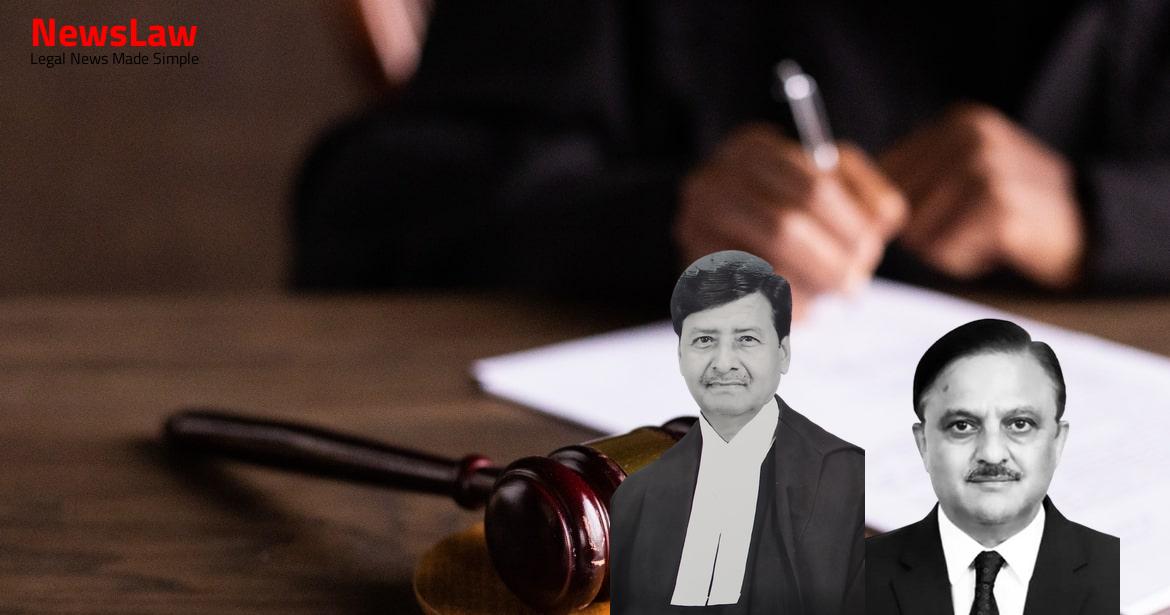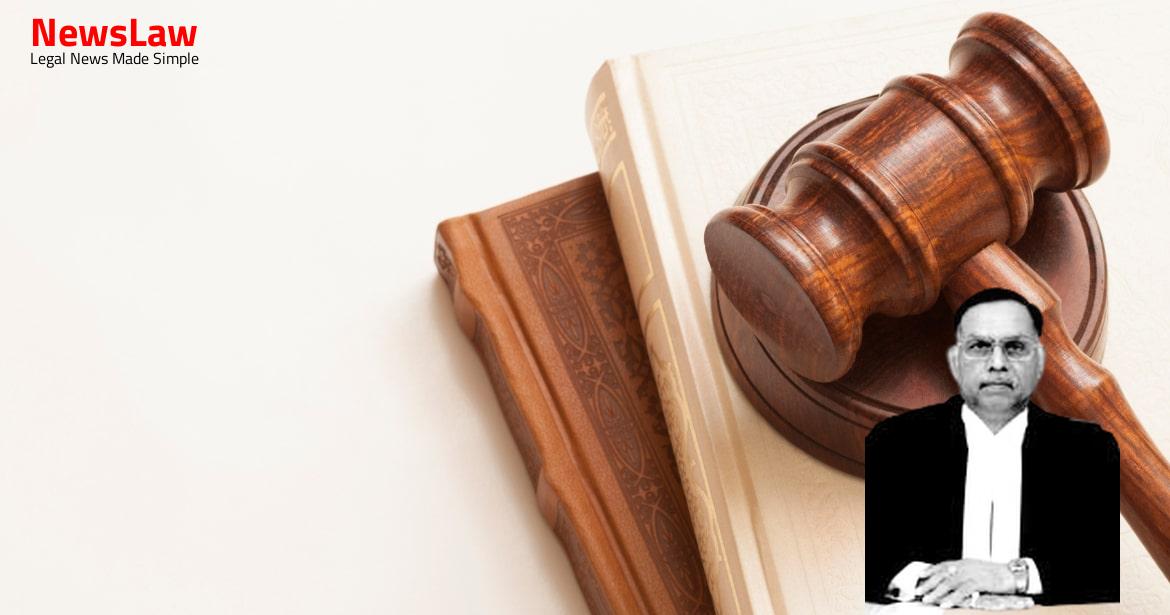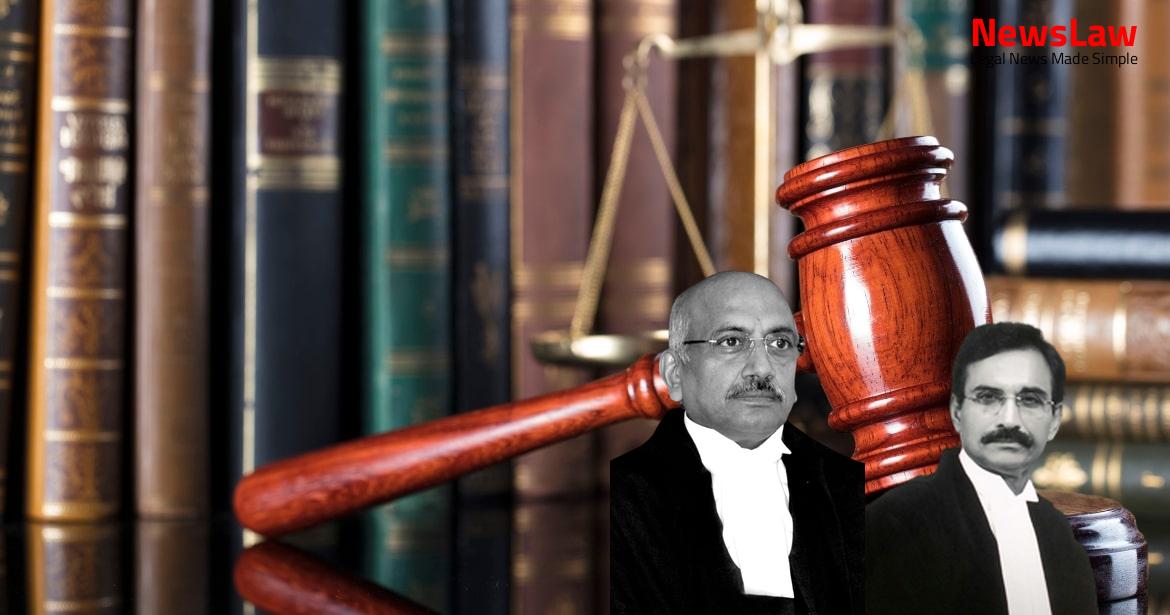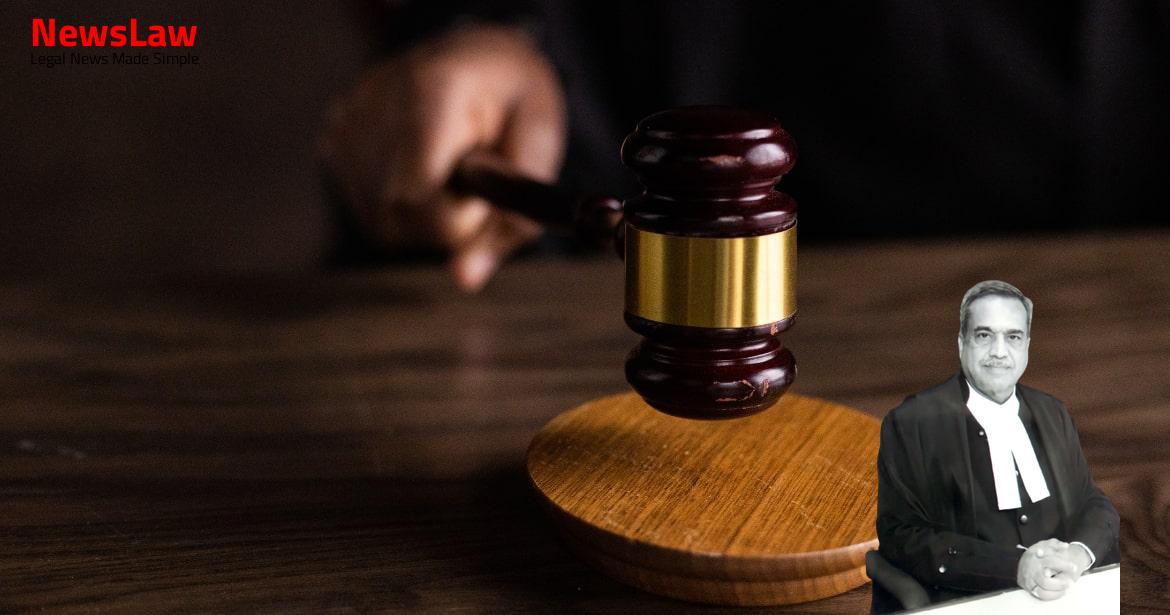The court delves into the complex legal issue of Director’s liability under Section 141 of the Negotiable Instruments Act. Through a meticulous legal analysis, the court examines the prerequisites for holding Directors accountable for company actions. This summary sheds light on the crucial factors that determine a Director’s vicarious liability in cases of dishonoured cheques, emphasizing the significance of compliance with the provisions of the NI Act. Stay tuned for key insights into this legal scenario.
Facts
- The appellants, directors of the appellant Company, issued a cheque to respondent no. 1 which was dishonored due to insufficient funds.
- Respondent no. 1 provided financial assistance to the appellants based on a Memorandum of Understanding.
- Appellant no. 2 signed the document with the consent of all remaining appellants.
- The appellants agreed to repay the amount within one or two years.
- Various cheques were issued by the appellants to repay the amount received.
- The total amount received by the appellants from respondent no. 1 was Rs. 1,50,19,831/- during the period from 23 November 2007 to 12 March 2009.
- The appellants were summoned to appear before the Court and were granted bail.
- Two criminal petitions were filed under Section 482 CrPC to challenge the order summoning the present appellants.
- The petitions sought quashing of the criminal complaints/Summary criminal case registered against them and the summons dated 10 November, 2012.
- The petitions were tagged together and dismissed by the High Court under the impugned order dated 18 July, 2014.
Also Read: Recovery of Misappropriated Temple Funds: Court’s Legal Analysis
Arguments
- Appellants argue that there is no specific averment accusing them of the offense or for being responsible for the company’s actions.
- They claim that being directors does not automatically make them vicariously liable without proof of misconduct.
- Appellants state they did not receive notice of the dishonored cheque and were not in charge of daily business operations on the cheque date.
- The appellants’ counsel asserts they were non-executive directors and not actively involved in the company’s affairs, a prerequisite for Section 138 NI Act proceedings.
- They argue that by not meeting the conditions under Section 141 of the NI Act, the summoning order is an abuse of legal process.
- Respondent’s counsel submits that there are other cheques issued by the appellants which were also dishonoured, and separate complaints have been filed.
- The pendency of the present appeals has prevented action on the other dishonoured cheques as per the trial judge’s discretion.
- The appellants in one of the appeals claimed to be non-executive Directors, but records show they are active Directors responsible for the company’s affairs.
- The Form No. 32 from the Registrar of Companies confirms all appellants as Directors of the company as of April 1, 2007.
- The contention of the appellants being non-executive Directors is seen as a matter for trial and not open for examination at this stage.
- Upon statutory compliance, the petitions of the appellants were rightly rejected by the High Court.
Also Read: Determining Seniority in Delayed Appointments: Legal Analysis
Analysis
- Directors who are not signatories to the cheques can still be held liable under Section 141 of the Act.
- Managing Directors and Joint Managing Directors are automatically considered in charge of the company’s business and are covered under Section 141.
- The complaint filed under Section 138 with Section 141 must specifically aver that the Directors were in charge of and responsible for the company’s business at the time of the offence.
- Merely being a director of a company is not enough to establish liability under Section 141.
- The specific details of the cases involving Managing Directors in Maharashtra are provided.
- The duty of a Magistrate to carefully consider the material in the complaint before issuing process under Section 138 of the NI Act is emphasized.
- Section 141 of the NI Act requires a specific averment in a complaint that the accused person was in charge and responsible for the conduct of the company at the time of the offence.
- Section 204 of the Code of Criminal Procedure indicates that the Magistrate must have sufficient grounds for proceeding against the accused.
- The complaint must establish sufficient grounds for proceeding against the accused.
- The Magistrate, at the time of issuing process, considers only the allegations in the complaint or charge-sheet, and if they do not constitute an offence, the complaint is liable to be dismissed.
- A complaint under Sections 138 and 141 of the NI Act must contain averments as per provisions and Magistrate’s discretion in accordance with Sections 200 to 204 CrPC.
- Failure to include basic averments can justify a Magistrate withholding process.
- Allegations in the complaint must establish that the appellants, as Directors, were responsible for the company’s business affairs during dishonour of cheques.
- Legal precedents emphasize the responsibility of Directors for company conduct.
- Compliance with Section 141 of the NI Act is crucial in determining Director’s liability.
- High Court intervention under Section 482 CrPC is limited unless clear evidence of innocence or abuse of process exists.
- Presence of basic averments does not guarantee Director’s liability; case-specific factors may lead to a different conclusion.
- Key issue is whether Directors can be vicariously liable for company activities under Section 141 of the NI Act.
- Determination of Director’s liability under Section 138 of the NI Act based on their role in the defaulter company.
- Presentation of a cheque of Rs.10,00,000 was dishonoured due to insufficient funds.
- Complaint was filed and proceedings initiated by the Magistrate.
- No error was committed by the High Court in dismissing the petition under Section 482 CrPC.
- Appellants are shown to be non-executive Directors based on Form No 32 from the Registrar of Companies.
- High Court rightfully did not interfere in quashing the complaint.
- Splitting the complaint to diminish allegations is not appropriate.
- Complaint includes details of cheque issuance, presentment, dishonour, and failure to pay after notice.
- Argument made by the counsel for the appellants was overruled.
Also Read: Legal Analysis in Assault and Homicide Case
Decision
- Appeals dismissed as they are old cases from 2012
- Observation to club all three cases mentioned in para 17 and dispose of them within six months
- Parties to record attendance before trial Court on 22 November, 2021
- Pending applications disposed of
- Inability to process further due to interim order of October 17, 2014 and appeals holding up other cases
Case Title: ASHUTOSH ASHOK PARASRAMPURIYA Vs. M/S. GHARRKUL INDUSTRIES PVT. LTD. (2021 INSC 646)
Case Number: Crl.A. No.-001206-001206 / 2021



